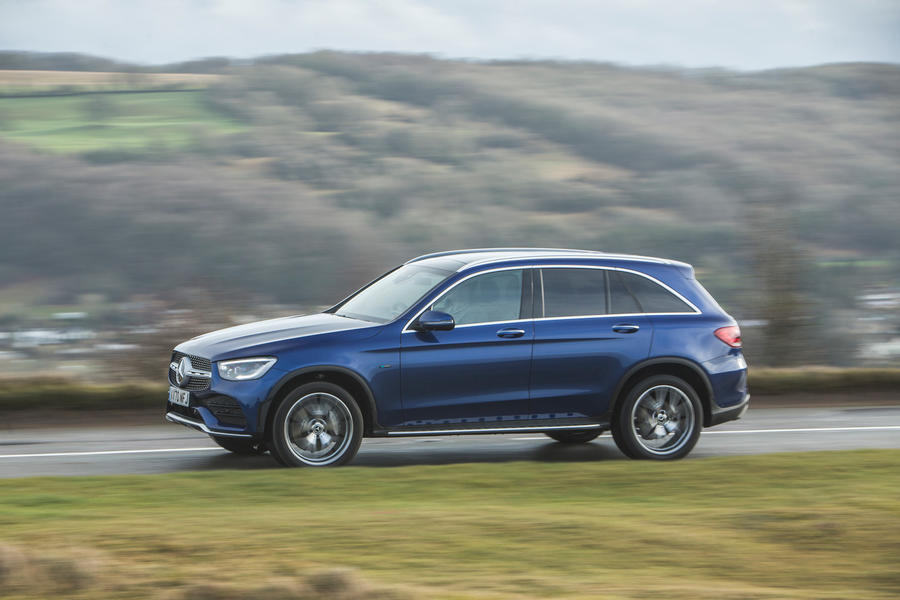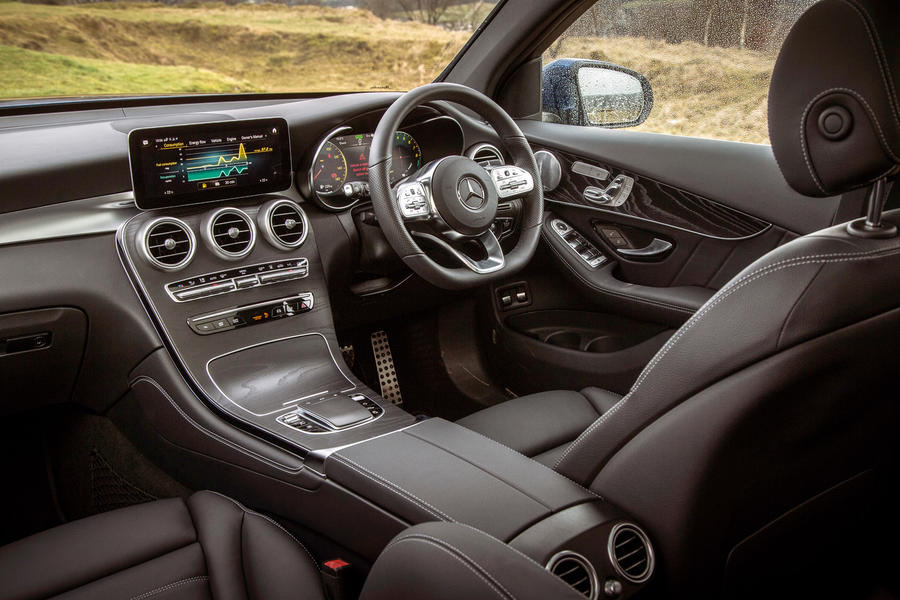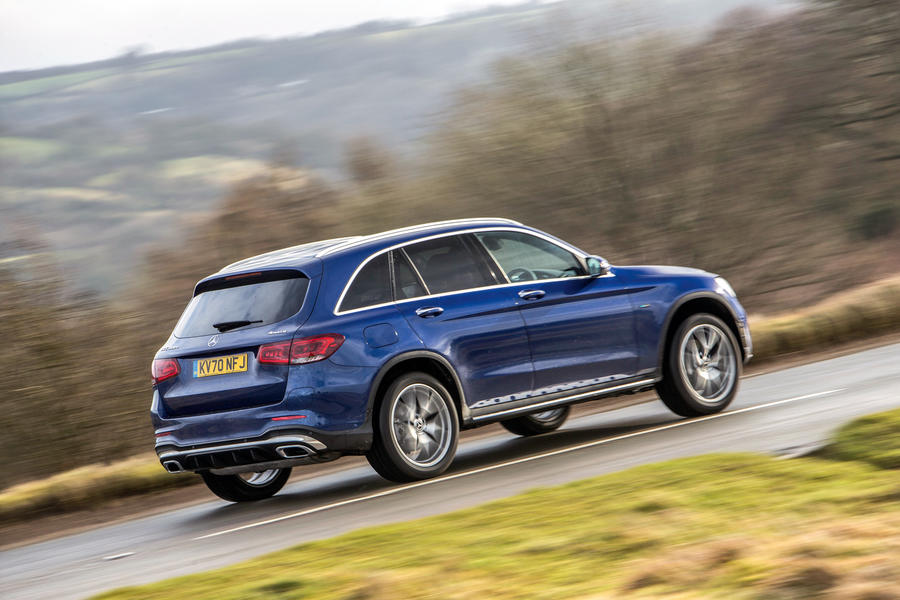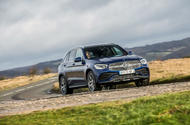An SUV with C-Class DNA is tempting, especially at £20,000
The Mercedes-Benz GLC had an unenviable start to life, having to replace the (left-hand-drive-only) GLK, which had amassed a cult following thanks to its cool, chiselled design. Mercedes-Benz took a gamble with a sleek new appearance – but happily it paid off.
Based on the C-Class saloon, the GLC sits between the GLA and GLE and was the only full-sized Mercedes SUV in Europe at the time of its launch in 2015. Its dynamic abilities meant it had no trouble handling British B-roads and sweeping corners so it was an attractive buy here from day one – and it’s even more tempting now as a used car.
The GLC is more than just a jacked-up C-Class, too. It offers more practicality than its executive counterpart, therefore serving up an ideal combination of space and pace. It comfortably competes with the Audi Q5, BMW X3 and Jaguar F-Pace, but what it really has over some of those rivals is low used prices, which start at £20,000.
At launch, customers could choose from a range of efficient oil-burners and powerful petrols. Two four-cylinder diesels were on sale: the 169bhp 220d and the 250d, which upped proceedings to 201bhp. The range was topped by the V6 350d, with 321bhp and a thumping 516lb ft of torque.
All of the GLC’s petrol engines were fine-tuned by Mercedes’ AMG performance division, starting with the 43, driven by a 361bhp 3.0-litre twin-turbocharged V6. The 63 packed a V8 with 462bhp and 479lb ft, while the 63 S, the peak of the GLC range, would leave most cars in the dust, with 496bhp and 516lb ft giving it a 0-62mph time of 3.7sec.
Power in every model was managed by a nine-speed automatic gearbox and Mercedes’ 4Matic or 4Matic+ four-wheel drive system.
A 2018 update introduced a more conservative 208bhp four-cylinder petrol engine in the 250. Then the range was adjusted further in 2019 with a significant facelift.

From here, the GLC was offered with two four-cylinder diesels (the 220d and 300d), a four-cylinder petrol with a 48V mild-hybrid system and two plug-in hybrids: the petrol 300e, with 315bhp and an electric-only range of 26 miles, and the diesel 300de, with 302bhp and 27 miles.
The GLC’s specification hierarchy originally started with SE. This got you 17in alloy wheels, climate control, electrically adjustable front seats, a powered tailgate and Mercedes’ Comand infotainment system with a 7.0in central screen controlled by a rotary dial on the centre console.
Sport introduced heated front seats, Garmin sat-nav, parking sensors and LED lights, while AMG Line added sporty touches including 19in alloys and sports (meaning firmer) suspension.
The trims changed as part of the facelift. The post-2019 range starts with AMG Line, featuring 19in wheels, sporty bodystyling, Thermotronic climate control and Mercedes’ new MBUX infotainment system, which is very impressive but not as intuitive to use, because the dial was ditched for a trackpad.
AMG Line Premium cars benefit from 20in wheels, running boards and ambient lighting, while range-topping AMG Line Premium Plus trim adds a panoramic roof, keyless ignition and parking assistance.
Need to know

The GLC is also available in Coupé form with a sloping rear. All equipment levels and engines are the same, but the boot size is slightly different. It’s 550 litres in the regular SUV and 500 litres in the Coupé. You will also have more difficulty loading taller items, because of that descending roofline. With the split folding rear seats put down, the Coupé offers 1400 litres, compared with 1600 litres in the regular SUV.
Prices for early GLCs from 2015 or 2016 start at around £20,000. AMG performance models are available from about £32,000 but the 63 S commands a hefty premium and is around £50,000. Petrols with a 48V mild-hybrid system for boosting fuel economy are fairly new to the market so will still set you back at least £42,000.
Buyer beware

Crab legs: A small number of GLCs suffer from ‘crabbing’ of the wheels, noticeable from noises when turning on full lock. Mercedes says it’s most prominent when conditions are below 7deg C and advises fitting winter tyres.
Take up the slack: Some cars might have an incorrect propellant mix in certain seatbelt pre-tensioner ignitors, meaning the seatbelts might not ‘pre-lock’ in an emergency. You can resolve this by contacting a dealer, who should replace the seatbelts free of charge.
Electrical issues: In the latest What Car? Reliability Survey, the GLC was ranked 11th out of 22 large SUVs. The majority of issues that owners faced were due to non-engine electrics, all of which were fixed under warranty.
Our pick
GLC 250d: The 250d offers a great blend of performance and economy, hitting 0-62mph in 7.6sec and averaging around 39mpg in everyday driving.
Wild card
AMG GLC 63 S: It may command a higher price, but the range-topper offers a sumptuous driving experience plus supercar-esque performance.

Our top spec
AMG Line: Sporty AMG Line is the most common trim, and for good reason. It was the range-topper before the facelift and retained plenty of premium kit after the reshuffle.
Ones we found
2016 Mercedes-Benz GLC 250d Sport, 30,000 miles, £25,798
2017 Mercedes-Benz GLC 220d AMG Line, 17,500 miles, £27,995
2019 Mercedes-Benz GLC 250 AMG Line, 11,000 miles, £32,285
Source: Autocar
